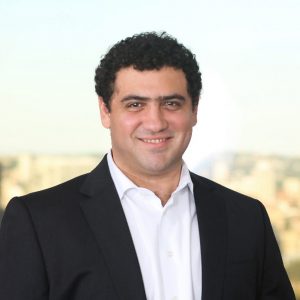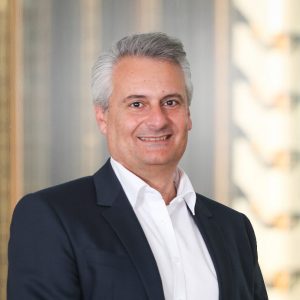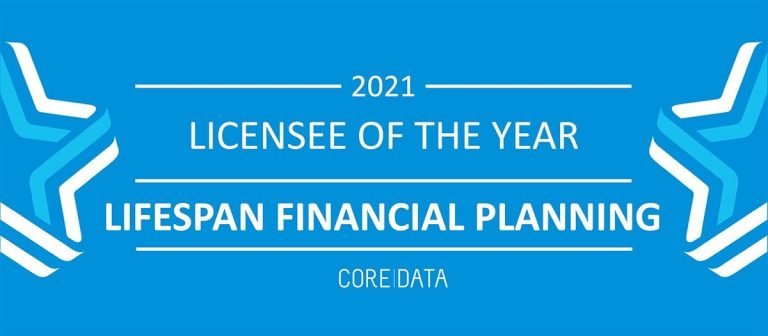For more than 25 years Lifespan Financial Planning has helped advisers and their clients build a better future for themselves. This is the story of Lifespan’s first quarter of a century, and its plan to grow into the future.
When John Ardino started Lifespan Financial Planning in 1994, he wanted to be independent of the big institutions which dominated the wealth management industry.
“The catalyst was the desire to have my own advice firm and to service advisers and accountants who wanted to enter the field. I wanted to control my own destiny,” he says.
At the time, financial advisers would provide their clients with financial plans governed by what the Lifespan Chairman says were “fairly rudimentary” disclosure rules, instead of the robust and heavily regulated statements of advice handed to clients today.
For Lifespan Chief Executive Eugene Ardino, John’s son, the firm’s birth meant everybody in the family needed to do their part as the business got off the ground.
“I remember the family conversation, being told that we all needed to tighten our belts because we were starting a business, and I was probably old enough to understand it,” he says.
“Perhaps it was a few years later but I also remember helping out with some photocopying as Dad wrote Lifespan’s first compliance manual.”
As the firm grew and its initial band of a handful of advisers quickly became hundreds, the support team also needed to expand.
“There was a need for us suddenly to do marketing, which I’ve never been great at. I actually remember the kids helping me with emails and databases and stuffing letters into envelopes,” he says.
“But we needed help with other things like software and brokerage management. So, we brought people in. One of the first people we recruited was a brokerage manager who in fact only left us just recently.”
Eugene says that even now the firm is still experiencing growing pains, pointing to the planning industry’s constant change and the increasing influence of technology-based solutions.
But as the industry has changed, so too has Lifespan, John explains.
“We have far more servicing staff now. For many years we had about 20 staff, but the team is now substantially larger in order to deal with the many additional compliance requirements and the need to monitor compliance and advice documentation,” he says.
“For many years we might have only checked 1000 to 1500 plans a year, now we’re doing between 7000 and 8000 plans in a 12-month period. Some days we have 30 to 40 new Statements of Advice to check, so the number of in-house compliance and technical staff that are monitoring and checking plans and files has escalated dramatically in the last few years.”
For John, that increased compliance staffing is one of the major differences between Lifespan and other licensee groups.
“Some people don’t like compliance, and that’s a reason why some advisers don’t join us. But the way I look at it is that most advisers would rather be with a dealer group that ensures every adviser in the group maintains the best standards and quality,” he says.
“Our number of clients now reaches into the tens of thousands and our ability to attract these wonderfully substantial, highly committed practices that employ quality staff and look for the best available technology is very pleasing.”
For Eugene, rolling out the firm’s constantly growing Managed Discretionary Account (MDA) service in 2011 has proved key to the business’ success and serves as a key milestone.
“That helped the business transform,” he says.
The MDA service now manages more than $500 million in client funds and recently joined the Australian retail platform with the largest annual net flow[1], BT Panorama.
In a year that for many advisers was in part typified by market volatility, Eugene says Lifespan has received extremely positive feedback for its MDA service, which helped advisers by ensuring their investment decisions were more quickly implemented across the entirety of their client base to protect portfolios or take advantage of buying opportunities.
He adds that he was “quite proud” of the firm’s 20th annual conference in Darwin in 2018 and has revelled in seeing some of Lifespan’s adviser businesses grow into very successful, award-winning firms, such as Finnacle, CBD Risk Management and Endorphin Wealth Management, who all took out IFA Excellence Awards in 2020.
“It’s nice to have been able to share in that journey with some of our advisers,” he adds.
John says it’s Lifespan’s strong reputation as a trustworthy and straightforward dealer group that should take much of the credit for its continued growth despite the financial planning industry’s ongoing contraction.
“At the end of the day, we’ve still got advisers that have been with us for 25 years. I believe that our growth is explained by the quality and experience of our people, our realistic approach and the respect we have for our advisers and their professionalism and independence,” John says.
Eugene adds that Lifespan’s team has strong connections with its adviser group, which has helped ensure advisers stay with the firm for the long haul.
“Having the right governance and compliance frameworks in place and attracting the right advisers who fit our culture has been key for us. There’s a clear expectation when people join, so they know what they’re going to get from us and our client-centric, pro-compliance culture. There aren’t too many surprises and we treat our advisers like family,” Eugene says.
He adds that maintaining those core values of integrity and a human touch will be key to the firm’s success over the next 25 years.
“But also, we need to continue to evolve and be aware of all the things that need to be done to adapt with the industry and our clients as their lives change,” he says.
Eugene adds that the ability to have scale and the firm’s privately-owned structure – which he says is important to advisers – will figure heavily.
“With the cost of advice continuing to go up and the level of compliance continuing to increase, having scale and good technology to be able to offset some of those increases is really important,” he adds.
John points out that Lifespan has successfully managed to avoid the issues which have derailed larger advice organisations, such as numerous complaints and professional indemnity claims which cause PI excess and total costs to skyrocket. The firm has already announced that its recently renewed PI insurance agreement didn’t cause it to increase its PI levy for advisers, unlike others in the market.
In an industry of constant change, Eugene says technology will be key for Lifespan’s ongoing success.
“Technology is going to be a very important part of the puzzle that all businesses need to get right, so enhancing our information technology systems is key. But so too is the ongoing improvement of our managed discretionary account solution, because that is a great way that advisers can add efficiencies to their business, and continue to achieve great outcomes for their clients and themselves,” he says.
“We want to continue to grow but maintain our soul and ability to really be a caring organisation that listens to its staff, advisers and service providers, and fosters an environment for great outcomes.”
[1] Plan For Life, Platform Wrap Report March 2020 data (net flow comparison performed excluding corporate super and on an individual platform basis) for the 12 months to March 2020. BT Panorama had the largest rolling annual net flow.






